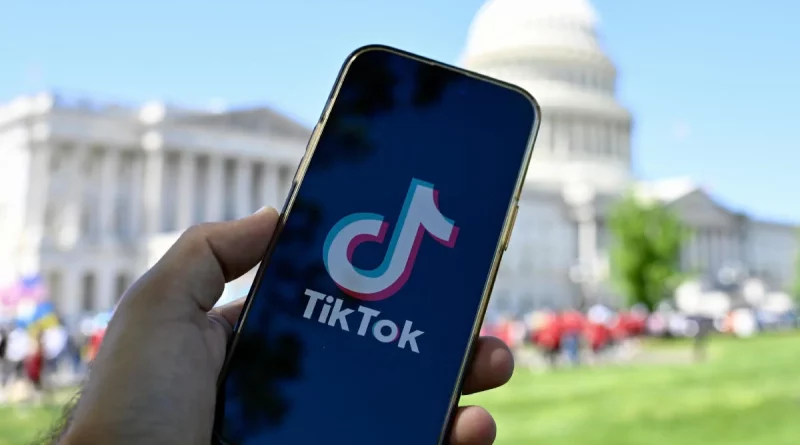TikTok will challenge the law banning the social network in the U.S.
Actions by the U.S. legislative and executive branches of government against social media platform TikTok will lead to a likely lawsuit regarding freedom of speech, which is guaranteed by the First Amendment to the U.S. Constitution. The head of the company said Wednesday that TikTok is suing and expects to win the case to block a law signed the day before by President Joe Biden.
The law, which was drafted by congressmen in the House of Representatives, includes a ban on TikTok’s presence in mobile app stores unless its Chinese owners sell the social network to a U.S. business.
TikTok CEO Shaw Ji Chu said the company expects to win the court case, and make sure all of TikTok’s current 170 million U.S. users have access to the popular short video app
“Rest assured – we’re not going anywhere,” the CEO said in a video published just after Biden signed the law, which gives Chinese company ByteDance 270 days to sell TikTok’s U.S. assets, after which the app’s operations would be banned.
“The facts and the Constitution are on our side, and we expect to prevail again,” Shou Ji said.
While the law itself says nothing about free speech, it has alerted civil rights advocates, TikTok owners and users of the app, who may sue to block the law.
TikTok denies transferring U.S. users’ data to China.
Lawyers agree that opponents of the law could argue that it violates free speech by preventing users from expressing themselves and prohibiting businesses from using the app to promote products.
TikTok has already defeated a similar attempt to ban its use in Montana, though the state is appealing the decision.
Jamil Jaffer, executive director of the Knight First Amendment Institute, called the initiative to ban the social network “censorship – plain and simple” in a letter his group and other organizations sent to lawmakers in March.
A court that agrees with that assessment would apply strict scrutiny, meaning the government must prove that it has not violated free speech rights under the Constitution’s First Amendment and that there are no other, lesser means of achieving national security goals.
Defenders of the law argue that it has nothing to do with free speech but simply regulates commercial activity, requiring TikTok’s Chinese owner, ByteDance, to sell its U.S. business within a year to deny China easy access to user data.
The legislation, approved by the Senate with broad support Tuesday, designates the U.S. Court of Appeals for the District of Columbia Circuit as the venue for any legal challenges. TikTok can ask the court to temporarily enjoin enforcement of the law while it makes the case that the measure is illegal and should be overturned.
Legal experts believe that if the government gets dragged into a constitutional lawsuit, it will have to prove that national security or some other pressing state interest is at stake. It would also have to prove that the law was “strictly tailored” to address that particular problem, and would not be carried over to other social networks in the future.
Critics see this as a vulnerability for the authorities: so far, Washington doesn’t seem to have worried about the misuse of user data by other social media platforms.
David Green of Electronic Frontier says that if lawmakers were really worried about data privacy transfers to other countries, they would pass legislation that would apply to all social media companies, not just TikTok.
The government would have to convince a court that the measure is not a restriction on free speech, being a regulation of a commercial transaction and a way to protect national security.
The government will argue that TikTok can continue to operate and U.S. users can still use it, but the app will not be owned by Chinese businessmen.
